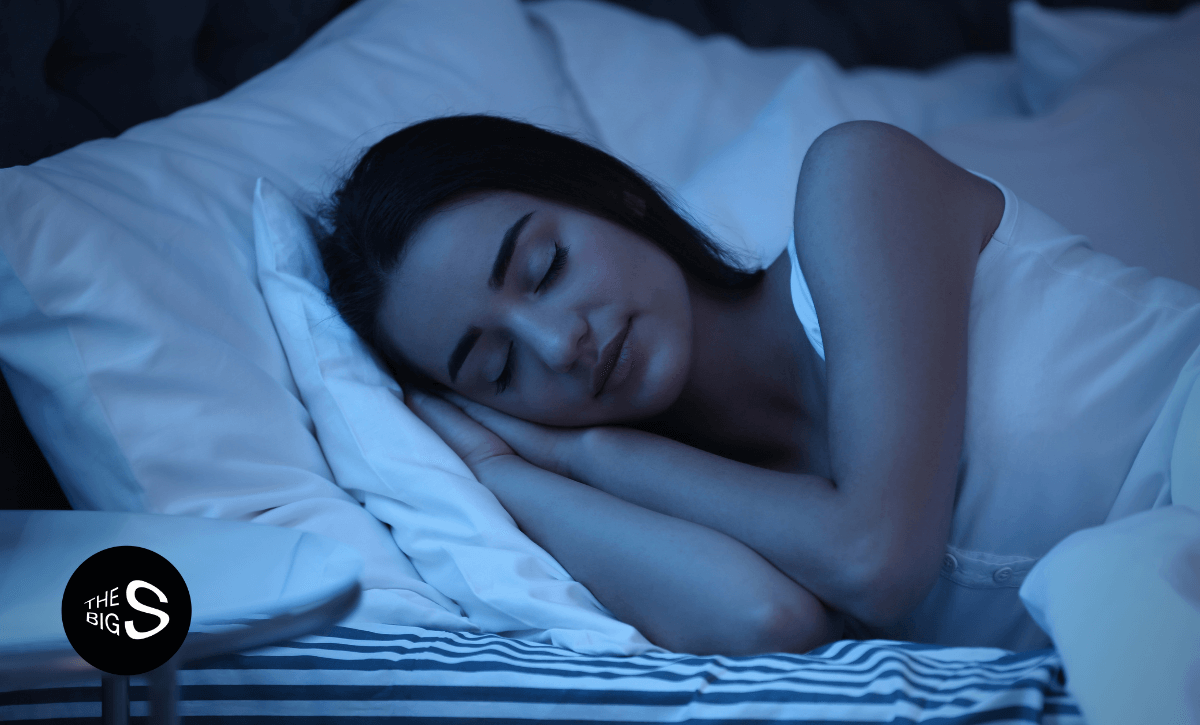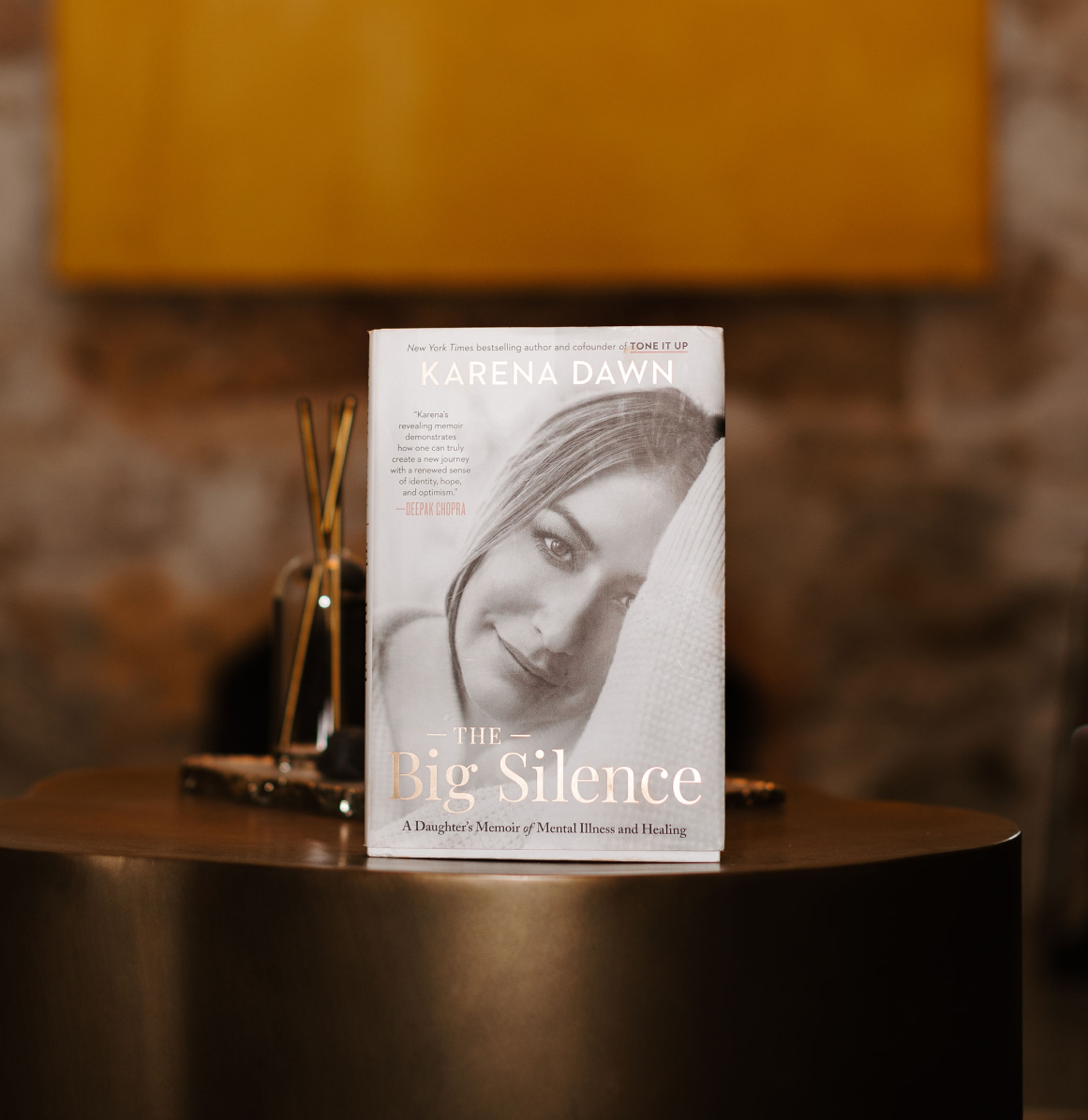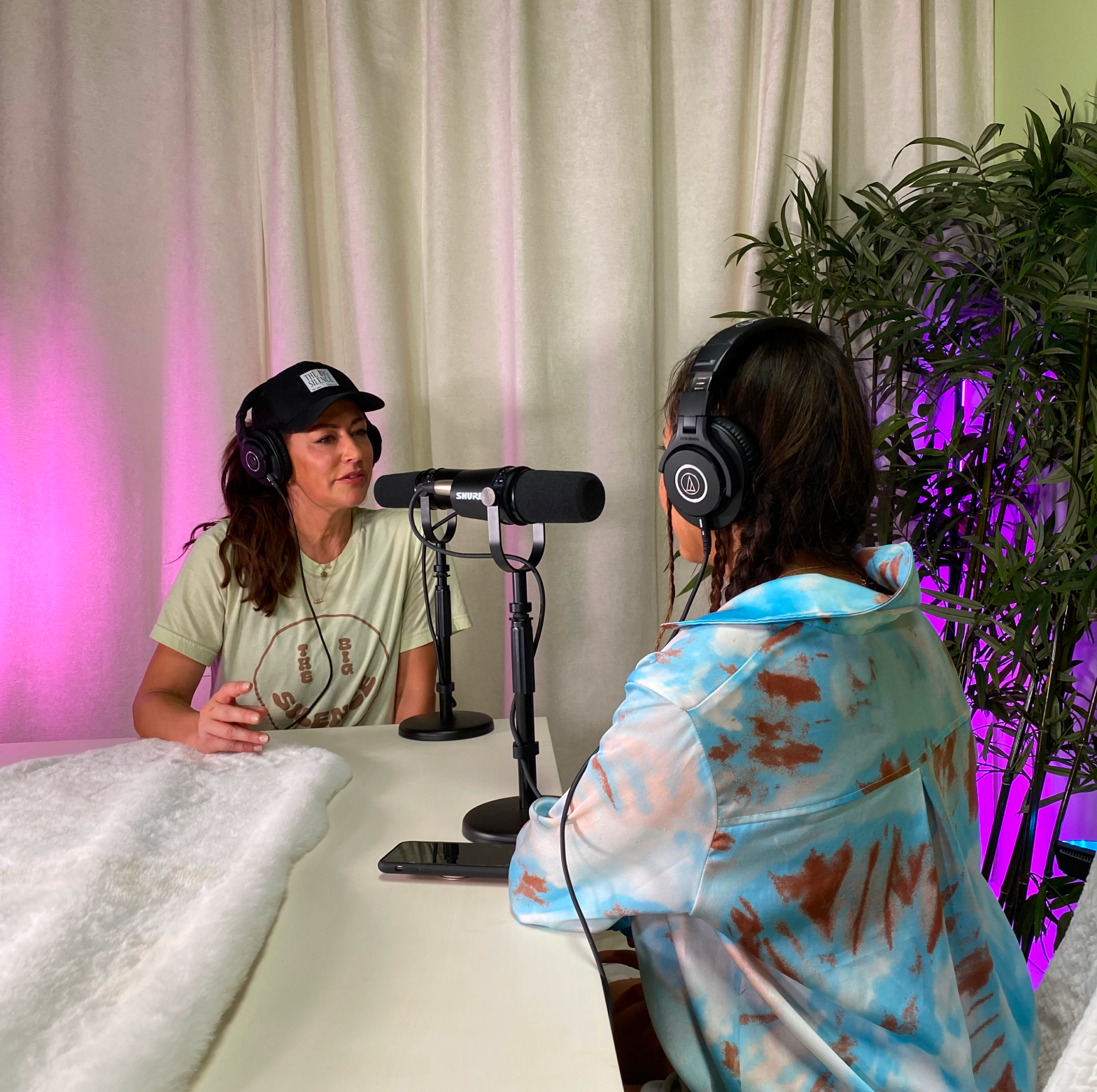
How to Get Better Sleep: The Key to a Healthy Mind
Welcome back to Big Feels Monday, a weekly series by The Big Silence where we talk about how we’re feeling, and bring up tools and inspiration to help start the week off.
Today, Karena and James discuss the negative effects of hustle culture and not sleeping well on mental health. They share their own routines and go deep into the best practices and tips to help you get good sleep and overcome sleeplessness, and how restful sleep encourages overall wellness.
What you'll learn:
- The importance of a good sleep routine for mental health
- Tips to improve sleep habits
- The negative effects of hustle culture on sleep
- The best practices for getting good sleep
- How to overcome sleeplessness
- Effective winding down routine crucial for sleep quality
- Optimizing bedtime routing for improved sleep quality and overall well-being
- The benefits of restful sleep
Who this video is for:
- Anyone who is struggling with sleep problems
- Anyone who wants to improve their mental health
- Anyone who is interested in learning more about sleep hygiene
Key Takeaways to help you get better sleep for the benefit of your mental health:
- Exhaustion is a trigger: You're more irritable, can handle less stress, and the stress load is just a lot heavier on a poor night's sleep
- Limit caffeine to early in the day
- Plan your "wind down" period
- Have a routine to help your body kick in to rest mode
- Don't go to sleep angry or feeling overwhelmed
How to Improve Sleep Quality and Help Your Mental Health
Sleep is the foundation of brain health. "If folks are going to work on one thing, I always say sleep. Sleep is the thing, because it impacts what's happening cognitively right in our systems. It interacts with what's happening metabolically in our systems," says Dr. Amy Kruse, a neuroscientist and General Partner and Chief Investment Officer of Satori Neuro. In Brain Breakthroughs: Investing in New Mental Health Technologies Dr. Kruse shares that sleep deprivation and disruptions in the sleep cycle can lead to cognitive impairment. She explains that:
"Sleep, sometimes, can feel like this big like amorphous thing, but the brain is actually doing some very specific tasks during sleep; which makes it so interesting and important. The other thing is that shows how incredible it is, is that it's conserved across so many species, right? It's not just like 'oh humans sleep and nobody else is sleeping,' everyone sleeps. It's really conserved, and when nature conserves something, it typically conserves something that has a really important role."
What does the brain accomplish during sleep?
There are qualities to sleep, that you may recognize as the stages of sleep you've heard about: Slow Wave sleep and REM sleep. Dr. Kruse explains:
"Those stages of sleep actually have different beneficial contributions to the brain. Like slow wave sleep, it's thought, helps kind of clear out the brain. It helps clear the gunk out of the brain that builds up over time as we just function during the day. And then there's REM sleep, which has been correlated with memory consolidation and is actually helping us consolidate important memories and important events throughout the day."
What are the best ways for my brain health to make sure I'm getting the best sleep?
Your Sleep Hygiene is how you go to bed; your environment and your timing. Dr. Kruse shares her advice and tips on how to get your best possible sleep:
-
Really target that seven to eight hours of sleep. Most people need to go to bed earlier, and for a lot of people that's challenging but that is one tool in the tool kit.
-
Lights: obviously the darker the room the better. Whether that's sleeping with eye shades, whether that's using blackout curtains... It's really important, because, you probably know this if you've ever sat on the beach and you closed your eyes, but you can see how bright it is outside. We actually get light through our eyelids, so just closing your eyes isn't enough. Making sure that things are really dark is is really critical, because part of light is part of what signals so some of our natural rhythms.
-
Temperature: Many people find that either reducing the room temperature while they sleep or using some type of chilling blanket or mattress pad, or something like that, can be very beneficial. A lot of people think that a cooler temperature can help with deep sleep and and enhancing deep sleep because there's point in time in the in the Sleep Cycle when the temperature dips in our bodies and we go into that cleansing mode versus activity mode.
-
Consider what you are ingesting in terms of caffeine and other stimulants before bed. If you are very sensitive to caffeine it's recommended to avoid caffeine after 11 in the morning. And, that includes all kinds of stimulants, not just caffeine. You have to be careful about other stimulants, because there could be some things that people are ingesting that they don't realize it's affecting them, like caffeine in chocolate, or sugar in a dessert.
- Alcohol: not a stimulant, and considered even a bit in the downer category, but alcohol affects sleep. Alcohol before bed can impact both resting heart rate as well as the quality of sleep structure.
Watch the full conversation with Dr. Amy Kruse:
Rest, Rejuvenate, Reset, Heal
When you are not getting enough sleep, the body hasn't been able to get in a proper rest state to actually rejuvenate, reset, and help heal all of your organs. This can lead to inflammation. Recently, CLEARSTEM Founders Danielle Gronich and Kayleigh Christina shared about how essential rest is for clear skin and a clear mind:
"When [the body] doesn't get to do its full cycle every single night, it's kind of stopping your body short each time, and it's waking up in this inflamed state that is very reactionary. It might be trying to give you signals like, 'Hey, I'm stressed out. I need more rest. I need more sleep. I need to be nourished with good food. I need you to slow down a little bit.' So, inflammation is a signal your body is giving you that's like: 'okay, this is too much. You need rest.'"
Tips for rest from CLEARSTEM Founders Danielle Gronich and Kayleigh Christina: "Without rest, We're not going to be our best selves."
More from Kayleigh Christina about her Sleep Hygiene Routine:
"I do my skin care routine and brush my teeth at least a half hour or so before bed, because I've noticed that, let's say we're watching TV and then we're going upstairs to bed, and then I do my skin care, my teeth and I try not to turn the lights on, but I still have to turn on like, dim, like a tiny bit of light. It wakes you back up right before you're about to go to sleep! So, I do everything I need to do for bedtime enough in advance, that when I'm getting tired, there's nothing else to do but just me in bed and fall asleep."
Planning Your Wind Down Period
As James mentioned in the video, a nice herbal tea before bedtime can help to set up a routine and signal your body for rest. Replace a wind down wine with an herbal tisane and get the restful benefits from Mother Nature. Try pairing your tea with a dim room, no screens, and soothing sounds or a warm bath to get the ultimate relaxing, sleep-inducing benefits.
Here are our tools to help create the best wind down period to help you get better sleep:
Establish a Consistent Bedtime Routine
- Set a regular bedtime and wake-up time to regulate your body's internal clock.
- Engage in relaxing activities leading up to bedtime, such as reading, gentle stretching, or practicing mindfulness meditation.
- Avoid stimulating activities like intense exercise or screen time at least an hour before bed, as these can interfere with your ability to fall asleep.
Create a Calm Environment
- Dim the lights in your bedroom to signal to your body that it's time to wind down. Try an eye-mask or black out curtains to block out any outside lights.
- Keep the room cool, quiet, and comfortable. Consider using earplugs or a white noise machine to block out any disruptive sounds.
- Pay attention to your comfort level. If you find yourself tossing and turning, consider investing in a more comfortable mattress or pillows that support more restful sleep for you.
Unplug from Technology
- Power down electronic devices such as smartphones, laptops, and tablets well before bedtime. The blue light emitted by screens can suppress the production of melatonin, the hormone that regulates sleep, so it's best to avoid them in the evening.
- If you must use screens, consider installing blue light filters, blue light blocking glasses, or using apps that adjust the screen's color temperature to reduce its impact on your sleep cycle. There's even a hack to turn your iPhone screen red and block blue light at night.
Practice Relaxation Techniques
- Incorporate relaxation techniques into your wind down routine, such as deep breathing exercises, progressive muscle relaxation, visualization, or meditation.
- Engage in activities that promote relaxation and stress reduction, such as taking a warm bath or sipping a cup of caffeine-free herbal tea like chamomile or lavender.
Limit Stimulants and Heavy Meals
- Avoid consuming caffeine and nicotine in the hours leading up to bedtime, as these stimulants can interfere with your ability to fall asleep.
- Avoid heavy or spicy meals close to bedtime, as they can cause discomfort and disrupt your sleep.
Reflect and Journal
- Take a few minutes before bed to reflect on your day. Consider jotting down any lingering thoughts or worries in a journal to help clear your mind.
- Practicing gratitude by writing down a few things you're thankful for can also promote a sense of calm and contentment before sleep.
Stick to Your Wind Down Plan
- Consistency is key when it comes to improving sleep quality. Commit to your wind down routine each night, even on weekends or during times of stress.
- It may take some time for your body to adjust to your new sleep routine, so be patient and persistent in your efforts.
Make a Good Night's Rest One of Your Mental Health Non-Negotiables
#DebbieDaily shares about the importance of taking note and making a commitment to your mental health non-negotiables. What is essential every day so that you can be your best self?
What's an essential step in your sleep hygiene routine? Let us know in the comments!
BIG FEELS FEEDBACK
How are you really feeling? We'd love to hear about your week, or share your favorite tools for the week in the comments!
|
The Big Silence Foundation, Inc is a U.S. tax-exempt 501(c)(3) organization dedicated to changing the culture of mental health. Consistent with IRS guidelines, all gifts are tax-deductible to the extent allowable by law. Donate to bring change with us!
|
Start a conversation in your The Big Silence apparel.
The information provided is for educational purposes only, and does not substitute for professional medical advice. Users are advised to consult a medical professional or healthcare provider if they're seeking medical advice, diagnoses, or treatment.
**Please note that if your thoughts start becoming hopeless or suicidal, contact emergency at 988 or 911 andcrisis services immediately. You can find more resourceshere. Text HELLO to 741741 to be connected with a trained crisis counselor.










